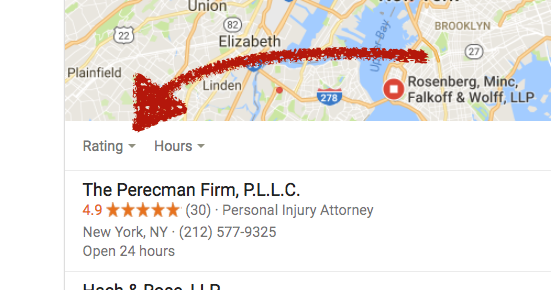Local search update: ‘Best’ filter invading the local pack

We all know good ratings and reviews are important for local businesses, and it seems they’re becoming even more so. Contributor Conrad Saam explains a new search results display that appears when queries include words like ‘best’ and ‘great.’
Google seems to be making moves to use the quality of small businesses — as determined by user ratings and reviews — as a ranking factor.
Today, the search giant has begun incorporating the quality element directly into the snack pack’s interface for some local searches (Hat tip: Dave DiGregorio). Note below on the search for “best Atlanta personal injury Lawyer”:

The functional filter appears ubiquitously for queries with the word “best” and other such superlatives. “Awesome,” “outstanding” and “great” all trigger the filter, although “stupendous,” “kick-a**” and “supreme” didn’t. Note that even without a qualitative element in the queries, the filter still shows, though it’s not prefiltered for 4.0-star and higher rated businesses, and it appears in gray rather than in red. :

I’ve suspected that Google has been looking to increase the focus on the qualitative element of local search results based on things that have been showing up, and have been talked about, in the industry where I work — the legal vertical. For example, we’ve seen SERPs with organic results from legal directory and lawyer rating service Avvo sandwiched between the ads and the local results on occasion. That site is specifically optimized for the word “best.”

This focus on quality is now showing up directly in the snack pack — making positive reviews an increasingly important component of the small business marketing arsenal. It’s not clear what weight the reviews take in the rankings. In the first example above, the third result actually has a higher rating than the second one. This could be because the second result has a higher volume of reviews — more than twice the number of reviews — or this could be due to physical proximity to the searcher or some other factor.



